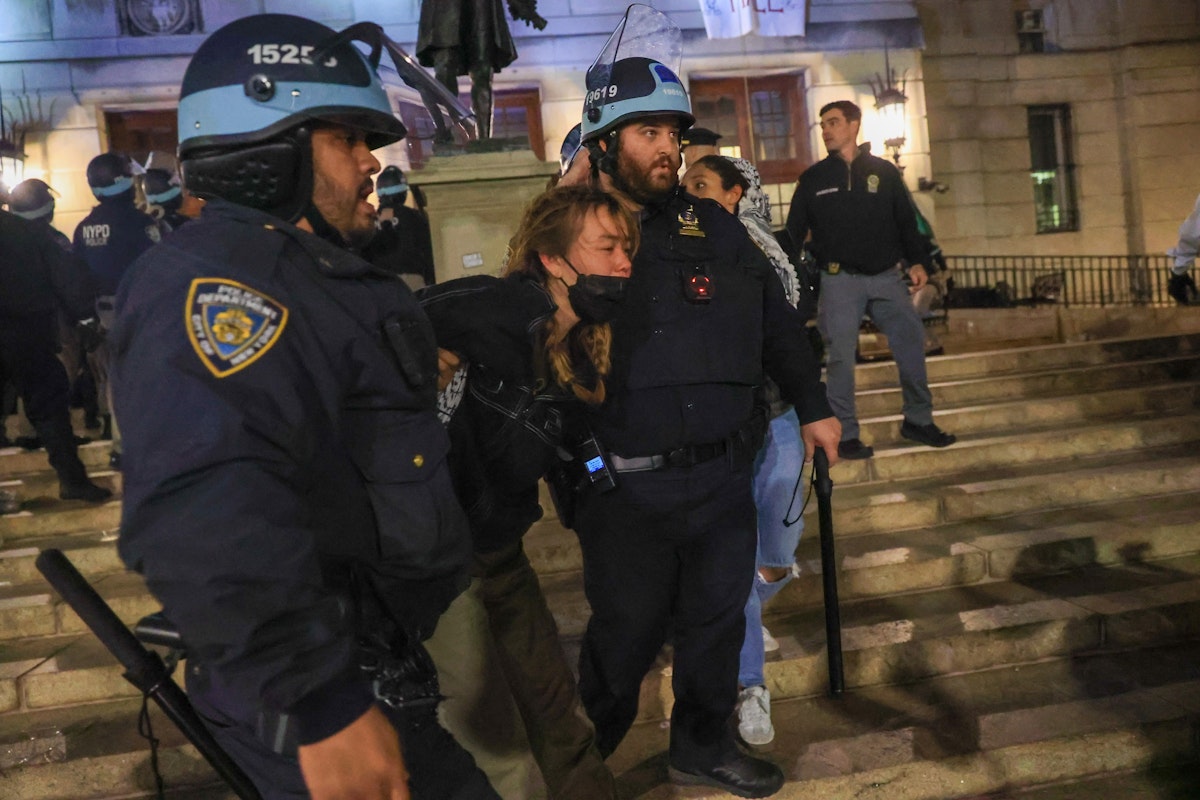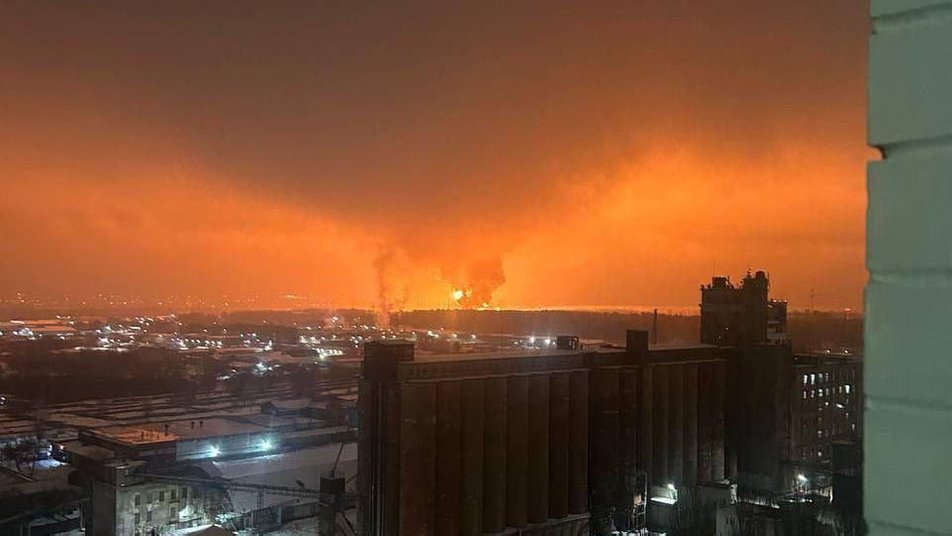Columbia Could Take Major Financial Hit Over Response to Gaza Protests
Columbia University alumni are firing back at the university over its crackdown on student protests demanding the school divest from Israel-aligned companies and weapons manufacturers. As of Thursday afternoon, more than 1,600 alumni from the university’s 20 schools have signed an online statement pledging to “withhold all financial, programmatic, and academic support of Columbia University” until certain demands are met, including, but not limited to: Divest from all companies and institutions that fund or profit from Israeli apartheid, genocide, and occupation in Palestine.Ensure accountability by increasing transparency around financial investments.Drop charges against student activists and reverse expulsions, suspensions and disciplinary action. End the policing and militarization of Columbia’s campus by removing and banning the NYPD. Continuous NYPD presence on campus until May 17th is unconscionable.Hold accountable faculty members, administrators, and any other University affiliates who have harassed and assaulted student human rights defenders.Sever all academic ties with Israel, including Columbia’s Global Center in Tel Aviv and the GS Dual Degree program with Tel Aviv University.Remove Minouche Shafik from her position as University President.More than $67 million of financial contributions to the school are at stake if demands are not met, according to the statement. The statement cites the university’s lack of a good-faith response to a Columbia College student body vote on a divestment referendum in late April that passed with 76.55 percent of voters calling to cancel the university’s Tel Aviv Global Center and end the dual degree program between the School of General Studies and Tel Aviv University. The statement also noted that Barnard College passed the same referendum with a 90.99 percent majority. As the statement points out, Columbia has a history of protests similar to the recent student protests over Israel’s war in Gaza, citing a three-week blockade of Hamilton Hall in 1983 over the university’s investments in apartheid South Africa. Protesters at the time renamed the building Mandela Hall in honor of anti-apartheid activist Nelson Mandela. That effort led to the university becoming the first Ivy League institution to divest from South Africa. On April 30, pro-Palestine protesters took over Hamilton Hall and renamed it Hind’s Hall to honor 6-year-old Hind Rajab, a Gazan who was killed alongside her family by Israeli forces during the current war.While wealthier donors, such as billionaires Robert Kraft and Leon Cooperman, have threatened to or have withheld their financial support to Columbia University for not taking a harder line against pro-Palestine protesters, Thursday’s alumni statement is the first such effort in support of the students, albeit from individuals with seemingly less wealth. Columbia’s protests have inspired similar activism from institutions across the country, which have been met with violence but also some successes and even acceptance from campus officials.

Columbia University alumni are firing back at the university over its crackdown on student protests demanding the school divest from Israel-aligned companies and weapons manufacturers.
As of Thursday afternoon, more than 1,600 alumni from the university’s 20 schools have signed an online statement pledging to “withhold all financial, programmatic, and academic support of Columbia University” until certain demands are met, including, but not limited to:
Divest from all companies and institutions that fund or profit from Israeli apartheid, genocide, and occupation in Palestine.
Ensure accountability by increasing transparency around financial investments.
Drop charges against student activists and reverse expulsions, suspensions and disciplinary action.
End the policing and militarization of Columbia’s campus by removing and banning the NYPD. Continuous NYPD presence on campus until May 17th is unconscionable.
Hold accountable faculty members, administrators, and any other University affiliates who have harassed and assaulted student human rights defenders.
Sever all academic ties with Israel, including Columbia’s Global Center in Tel Aviv and the GS Dual Degree program with Tel Aviv University.
Remove Minouche Shafik from her position as University President.
More than $67 million of financial contributions to the school are at stake if demands are not met, according to the statement.
The statement cites the university’s lack of a good-faith response to a Columbia College student body vote on a divestment referendum in late April that passed with 76.55 percent of voters calling to cancel the university’s Tel Aviv Global Center and end the dual degree program between the School of General Studies and Tel Aviv University. The statement also noted that Barnard College passed the same referendum with a 90.99 percent majority.
As the statement points out, Columbia has a history of protests similar to the recent student protests over Israel’s war in Gaza, citing a three-week blockade of Hamilton Hall in 1983 over the university’s investments in apartheid South Africa. Protesters at the time renamed the building Mandela Hall in honor of anti-apartheid activist Nelson Mandela. That effort led to the university becoming the first Ivy League institution to divest from South Africa.
On April 30, pro-Palestine protesters took over Hamilton Hall and renamed it Hind’s Hall to honor 6-year-old Hind Rajab, a Gazan who was killed alongside her family by Israeli forces during the current war.
While wealthier donors, such as billionaires Robert Kraft and Leon Cooperman, have threatened to or have withheld their financial support to Columbia University for not taking a harder line against pro-Palestine protesters, Thursday’s alumni statement is the first such effort in support of the students, albeit from individuals with seemingly less wealth.
Columbia’s protests have inspired similar activism from institutions across the country, which have been met with violence but also some successes and even acceptance from campus officials.


